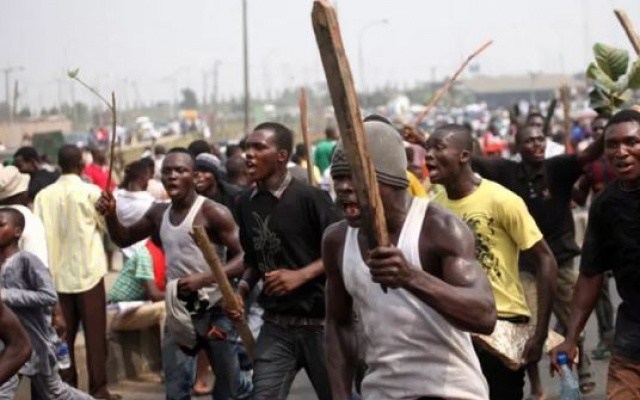Ghana entered the Fourth Republic in 1993 after experiencing political instability for over two decades. A defining feature that has characterized the Fourth Republic of Ghana and marred Ghana’s democratic credentials is the emergence of political vigilantism.
Political vigilantism refers to the use of violent measures to punish individuals who are deemed corrupt and therefore deserving of removal from public office by self-appointed defenders of justice.
In Ghana, however, political vigilantism means a group of people who are loyal to a particular political party who use violence to support that party’s interests.
Why it Matters
Political vigilantism is a major problem in Ghana because it often leads to human rights abuses and undermines the rule of law. The phenomenon was most notable during the 2008 elections and 2016 elections. For example, in 2016, members of the pro-government vigilante group Invincible Forces attacked and killed six people who were protesting against government corruption. This incident highlights how political vigilantism can lead to violence and instability.
Due to the escalation of political vigilantism, the chairman of the National Peace Council, Rev. Professor Emmanuel Asante, alluded to the fact that ‘he does not feel safe with the current rise of pro-government party vigilantism in the country (Daily Graphic, 31 October 2017).
When it All Started
Political vigilantism in Ghana can be traced back to the early 1990s when the country was transitioning from military rule to democracy. In the lead-up to the 1992 elections, there was a rise in crime and insecurity, which led to the formation of vigilante groups by political parties.
These groups were initially created to protect party members and property during election campaigns. However, they soon became involved in violence and other illegal activities. Over the years, political vigilantism has become increasingly entrenched and is now seen as a major threat to Ghana’s democracy.
Partisan politics intensified in the 2020 general elections, and these self-appointed guardians of society emerged as a new breed of voter intimidation squads. According to the Commission on Human Rights and Administrative Justice (CHRAJ), these armed thugs are out for blood at every polling station across the country.
A Threat to Our Democracy
Political vigilantism has several consequences that threaten the stability of Ghana’s democracy. Political vigilantism leads to violence and intimidation, which can discourage people from participating in the political process. In addition, it distorts the outcome of elections if one party can mobilize more vigilantes than the other.
Furthermore, it creates a climate of fear and insecurity, which can further erode public trust in government. Political vigilantism also undermines the rule of law by leading to extra-judicial killings and violence. It also weakens state institutions by weakening their ability to provide security and rule of law.
This phenomenon also leads to increased polarization and division within society, and finally, it hurt Ghana’s international reputation on democracy and can discourage investors from coming to Ghana.
Why We Must Act
Taking action against political vigilantes is therefore essential for protecting democracy and upholding the rule of law. One way that citizens can participate in this effort is through monitoring and reporting acts of political vigilantism.
Citizens should report acts of vigilante groups to authorities, such as police or the local office of the Ministry of Interior. Vigilante groups should not receive any form of support from civil society organizations or individuals (whether financial or otherwise).

